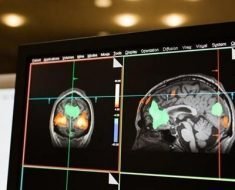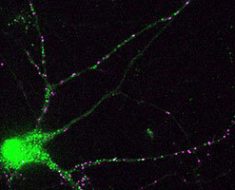Proximity to nearby muscle cells may make prostate cancer cells more likely to invade nearby tissues and spread to other organs, according to an early study by researchers at the National Institutes of Health. The presence of muscle cells appears to make cancer cells more likely to fuse two or more cancer cells into a single cell, thereby increasing their invasiveness and ability to spread. The study was led by Berna Uygur, Ph.D., of NIH’s Eunice Kennedy Shriver National Institute of Child Health and Human Development (NICHD) and includes colleagues from the National Eye Institute and the Maine Medical Center Research Institute in Scarborough. The study appears in Molecular Cancer Research.
Researchers grew human prostate cancer cells in laboratory dishes along with human muscle cells—stand-ins for the smooth muscle surrounding the prostate gland and the striated muscle of the urethral sphincter at the base of the prostate. The muscle cells secreted interleukins 4 and 13, cellular proteins that stimulated the cancer cells to produce two additional proteins, annexin A5 and syncytin 1, which triggered the cancer cells to fuse together.
Source: Read Full Article





